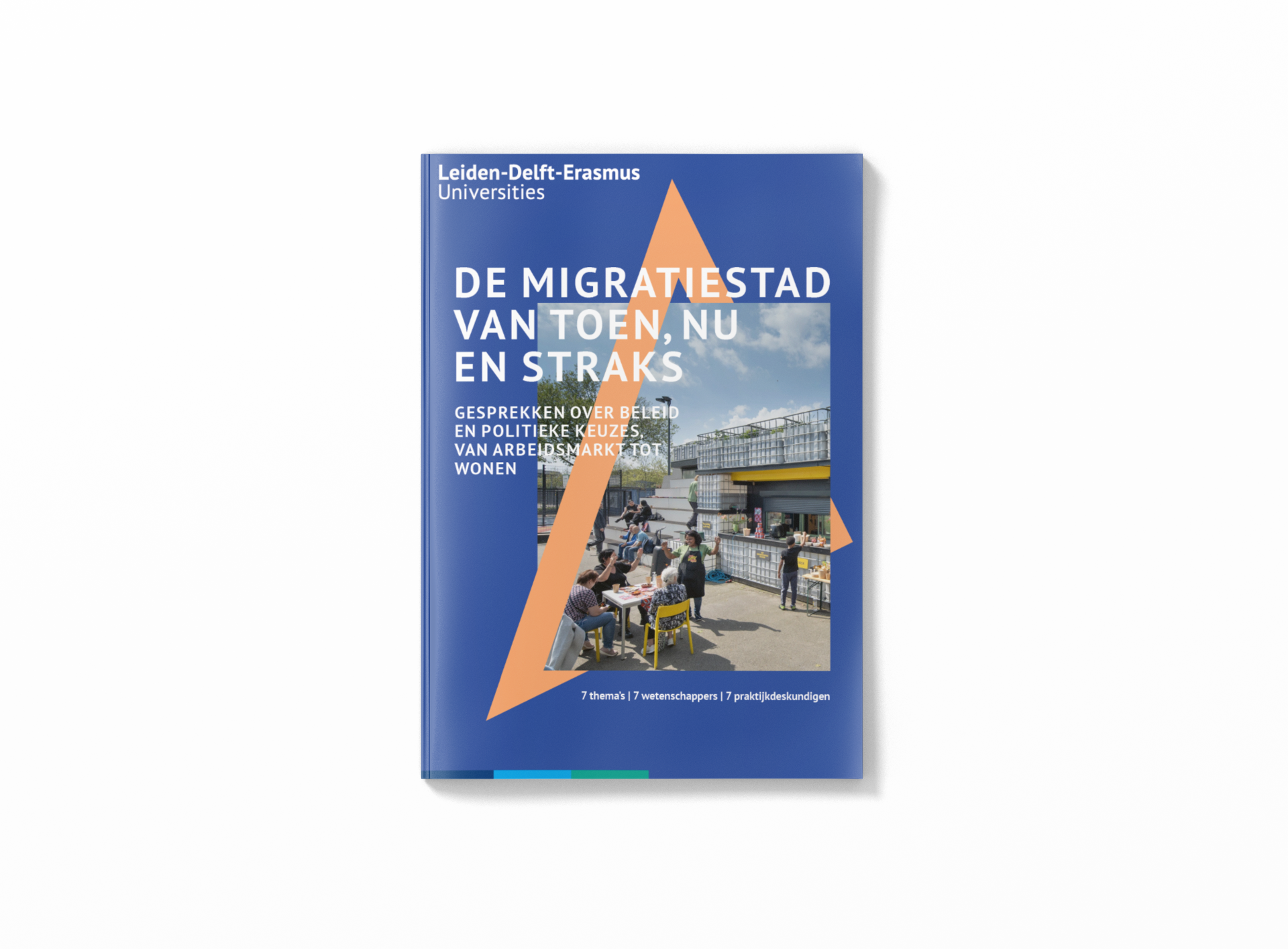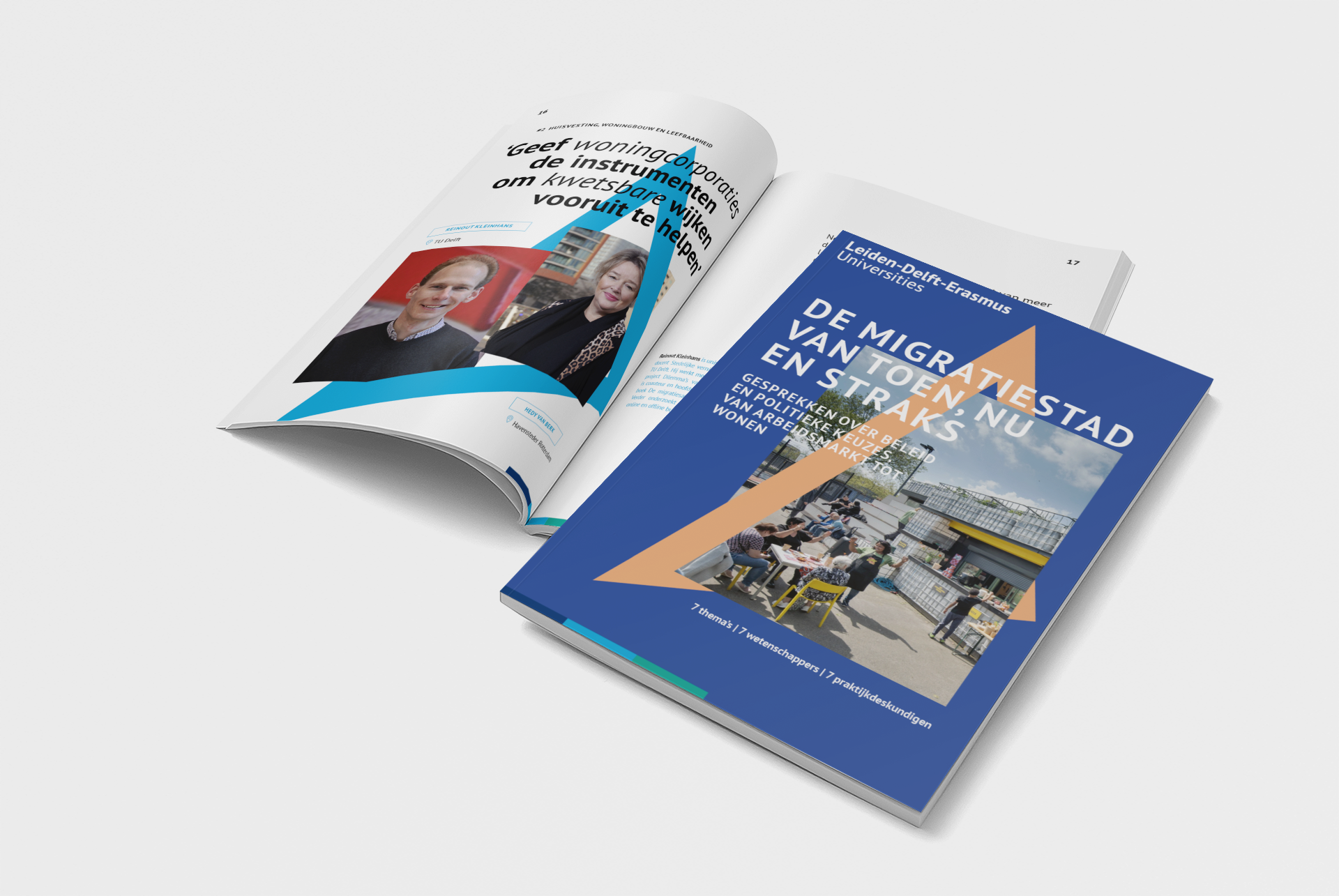The Migration City of the Past, present, and future
Conversations on policies and political choices, from the labour market to housing
Introduction
The themes of migration, integration and diversity cannot claim to be neglected. Whether it is about asylum, refugees, Black Lives Matter, ‘bed-bath-bread’ shelter, labour migration or migrant dependants, the topic of migration appears in the news in one form or another every week. Fortunately, alongside this media coverage and the questions it raises, there is also a lot of sound research into migration. This produces knowledge that does not always find its way into the most heated debates. That means, for example, that policies are sometimes based on ‘migration myths’ (De Haas, 2023).
Nothing new
Politicians also often whip up sentiment about a particular issue, even though from a historic perspective there is nothing new that would suggest a crisis. This underlines the importance of linking the social mood to scientific knowledge. This volume contributes to this process by bridging these worlds and entering into the discussion - across borders, disciplines, and worlds.
This is necessary, especially in Dutch society with its extensive migration-related diversity (Scientific Council for Government Policy, 2020; Kleinhans et al., 2022). In Dutch cities in particular, this manifests itself in a variety of ways. Administrators, policymakers, and practitioners grapple with complex issues of liveability, safety, education, housing, the labour market, and amenities. We therefore have to look beyond ‘the migration society’ and envisage the migration city of the past, present, and future.
The method: dialogues...
The above raises questions. How will migration change our cities? What will be the most important themes? What does this mean for our democracy and governance? For what aspects are fundamental political choices needed? And what adjustments need to be made?
In this volume, we address questions of this kind using dialogues.
In recent years, we at the Governance of Migration and Diversity Leiden-Delft-Erasmus research centre (LDE GMD) have experienced how important it is to consider migration and migration-related diversity from different perspectives and disciplines. Every day, we witness how important it is for a historian to speak with an engineer, a cultural sociologist with an economist, or a lawyer with a public administration expert. We have extended this practice throughout this volume and beyond the academic disciplines. That is why we have deliberately decided to pair academics with representatives from the field, to see what different worlds and new perspectives emerge. How different or similar are particular impressions and what emerges when you enter into discussions with each other?
Although we have a strong international orientation as a research centre, this volume focuses on contributions to the Dutch situation and discussion. This volume is intended for urban and other administrators, policymakers, migrant organisations, umbrella organisations (FNV, VNG, Aedes), knowledge organisations (Platform31, Movisie) and other representatives from the field with responsibility for including the challenges of the migration city in policies and their implementation.
...Not arguments
Based on seven themes, we reflect on lessons from the past, examine present-day issues, and ask ourselves what form the migration city of the near future could take and what important steps are needed to achieve that. The dialogues in this volume are deliberately not arguments, as there are already plenty of those in the highly polarised debate on migration. They are dialogues, focused on what the future could look like and how we can get there together.
In the final chapter summary, we bring together the key insights from the dialogues. We have deliberately decided not to make policy recommendations. This would require much more context, analysis and detail for each issue and situation than this publication can provide. We do hope to provide an introductory and stimulating perspective for nuanced conversations about migration and diversity. This will enable us to jointly discover what is important to really solve societal problems. Anyone who reads random newspapers, news pages, or social media understands how necessary this has now become.
This volume is intended for anyone with responsibility for including the challenges of the migration city in policies and their implementation.
Read the 7 thematic dialogues and the knowledge file below:
#1 Labour market and migration | “The benefits and disadvantages of labour migration are unevenly distributed” - Olaf van Vliet (Professor of Economics, Leiden University) and Imke van Gardingen (FNV policy advisor)
#2 Housing, house building, and quality of life | “Give housing associations the tools to help vulnerable neighbourhoods move forward” - Reinout Kleinhans (associate professor of urban renewal, TU Delft) and Hedy van den Berk (chairman of the board of the Havensteder housing association)
#3 Asylum, dispersal, and the Dispersal Act | “Allow asylum seekers to integrate straight away” - Elina Jonitz (PhD candidate in Public Administration and Sociology, Erasmus University Rotterdam) and Anne Backer (advisor at the COA, the central agency for the reception of asylum seekers)
#4 Discrimination and exclusion | “Polarisation is good. Much better than an uneasy silence” - Nadia Bouras (lecturer in the history of Morocco and Moroccan migration, Leiden University) and Tikho Ong (project manager at the RADAR anti-discrimination agency)
#5 Political participation and representation | “Especially in superdiverse cities, a unifying message has great potential” - Warda Belabas (lecturer in Governance of Migration and Diversity, Erasmus University Rotterdam) and Mustapha Eaisaouiyen (activist and opinion maker)
#6 Crime, safety, and migration | “The first step towards a safe city is good education.” And robust policing” Henri Lenferink (PvdA politician and administrator; chairman of the provincial Migration Direction Table) and Maartje van der Woude (Professor of Law and Society, Leiden University)
#7 Intersectionality | “Shared humanity returns when you meet each other again in your neighbourhood“ - Caroline Newton (associate professor of urban planning, TU Delft) and Wouter Veldhuis (National Advisor for the Physical Living Environment)


